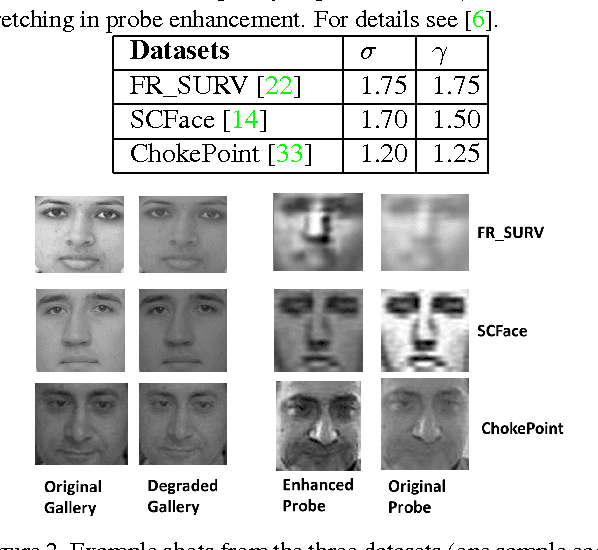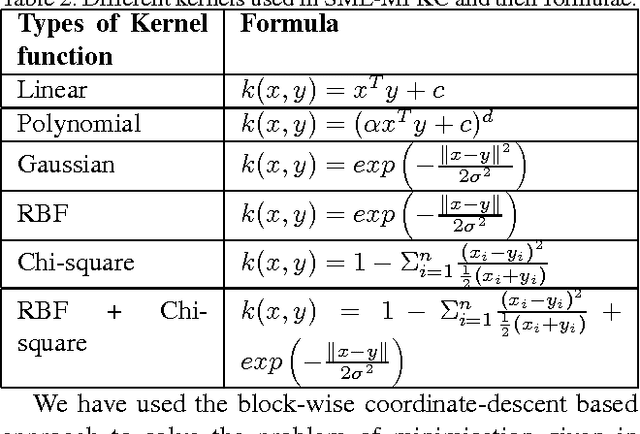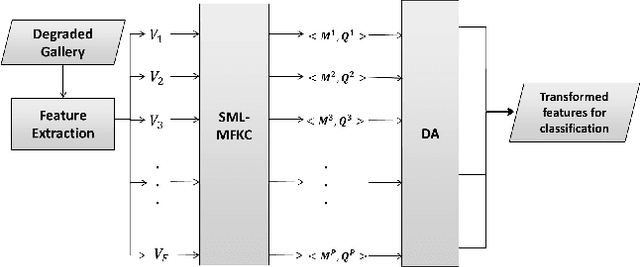Domain Adaptation with Soft-margin multiple feature-kernel learning beats Deep Learning for surveillance face recognition
Paper and Code
Oct 27, 2016



Face recognition (FR) is the most preferred mode for biometric-based surveillance, due to its passive nature of detecting subjects, amongst all different types of biometric traits. FR under surveillance scenario does not give satisfactory performance due to low contrast, noise and poor illumination conditions on probes, as compared to the training samples. A state-of-the-art technology, Deep Learning, even fails to perform well in these scenarios. We propose a novel soft-margin based learning method for multiple feature-kernel combinations, followed by feature transformed using Domain Adaptation, which outperforms many recent state-of-the-art techniques, when tested using three real-world surveillance face datasets.
* This is an extended version of the paper accepted in CVPR Biometric
Workshop, 2016. arXiv admin note: text overlap with arXiv:1610.00660
 Add to Chrome
Add to Chrome Add to Firefox
Add to Firefox Add to Edge
Add to Edge